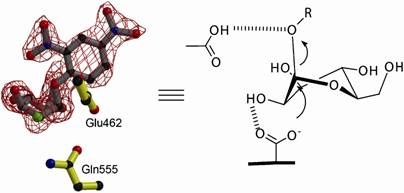BASF officially inaugurates its new citral plant in Ludwigshafen
Today, August 24, 2004, BASF will officially inaugurate a new production plant for the fine chemicals intermediate citral at its Ludwigshafen site. The world-scale plant, which has an annual capacity of 40,000 metric tons, replaces an existing plant with a capacity of 10,000 metric tons per year. As a result, citral will become the key building block for BASF's fine chemicals, forming the starting point for the production of vitamins A and E, as well as carotenoids and an extended range of aroma chemicals. Products based on citral are used in animal and human nutrition and in the health and cosmetics sectors.
BASF expects fine chemicals markets to grow by about 6 percent on average by 2010. In particular, this growth will be driven by the constantly increasing world population, the rising level of incomes in threshold and developing countries, as well as the rising health awareness of many people.
With the startup of the plant, BASF has implemented a key project in its EUR300 million investment program for fine chemicals at the Ludwigshafen site. The goal of investing in citral and its derivatives is to strengthen the company's activities in this field in the long term and further expand on BASF's position as the world leader. "The new citral plant not only offers a guarantee that we can reliably supply our customers with the products they require, but also marks an important step toward ensuring our competitiveness," said Martin Laudenbach, head of BASF's Fine Chemicals division. At present, the global fine chemicals business is characterized by increasing pressure on margins due to new suppliers, in particular in Asia.
BASF's citral synthesis benefits from the synergies offered by the Ludwigshafen Verbund site and can be traced back as far as the basic chemicals from the steam cracker. The first citral plant at the Ludwigshafen site started operations in 1981 and had an annual capacity of 2,200 metric tons, which was increased stepwise to 10,000 metric tons. With a capacity of 40,000 metric tons per year, the new plant inaugurated today is many times larger than that of the next largest competitor. The new plant, which uses the first continuous process for citral, and the subsequent production stages are based on numerous innovative process steps and catalyst systems that have been developed by BASF's researchers in recent years. Overall, the new plant will significantly simplify production structures for fine chemicals, thus reducing production costs.
Other news from the department manufacturing
Most read news
More news from our other portals
See the theme worlds for related content
Topic world Synthesis
Chemical synthesis is at the heart of modern chemistry and enables the targeted production of molecules with specific properties. By combining starting materials in defined reaction conditions, chemists can create a wide range of compounds, from simple molecules to complex active ingredients.

Topic world Synthesis
Chemical synthesis is at the heart of modern chemistry and enables the targeted production of molecules with specific properties. By combining starting materials in defined reaction conditions, chemists can create a wide range of compounds, from simple molecules to complex active ingredients.




























































